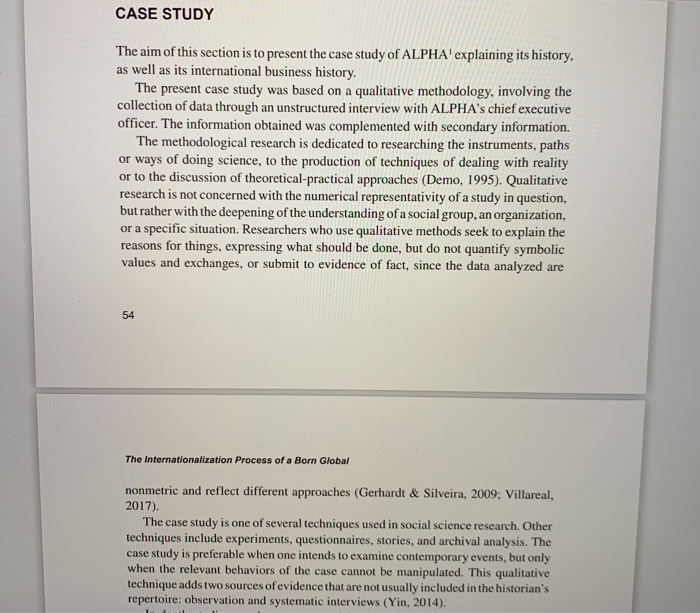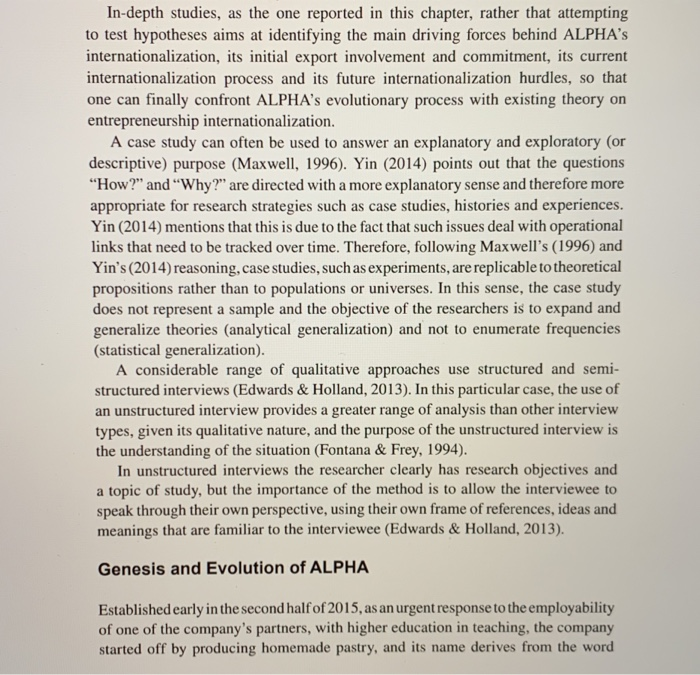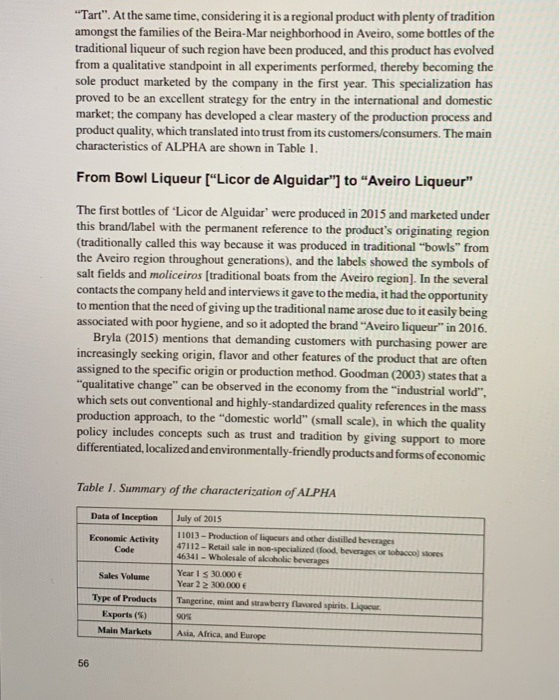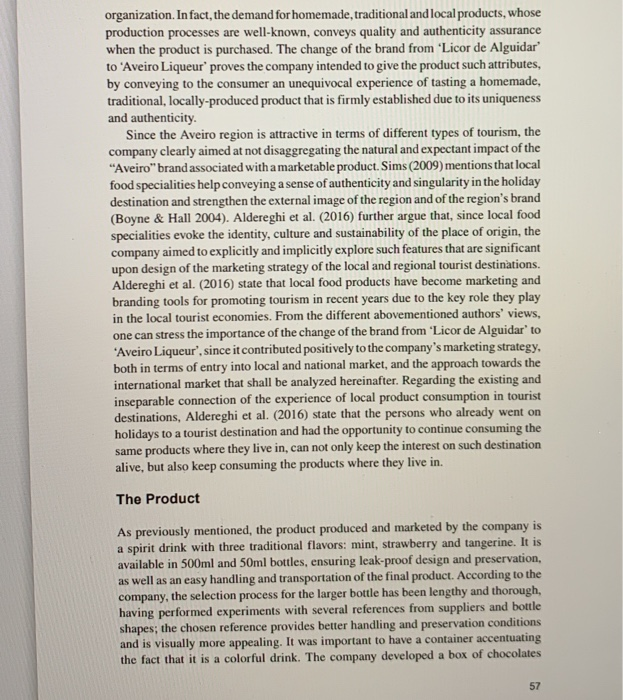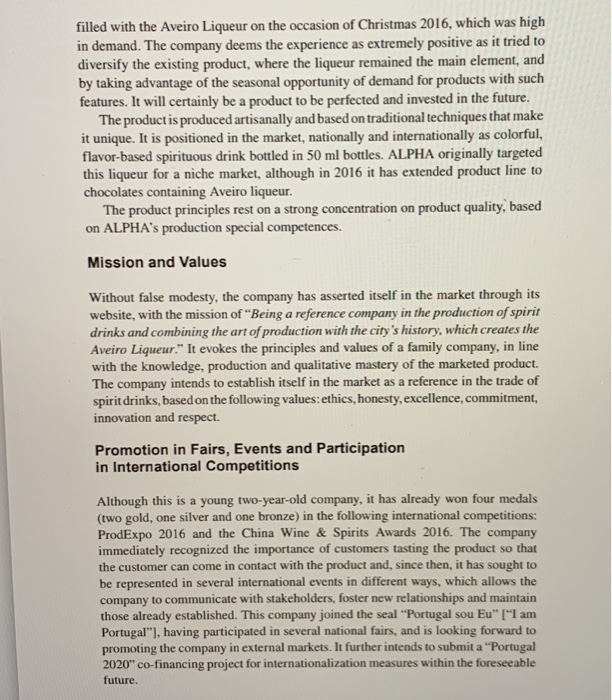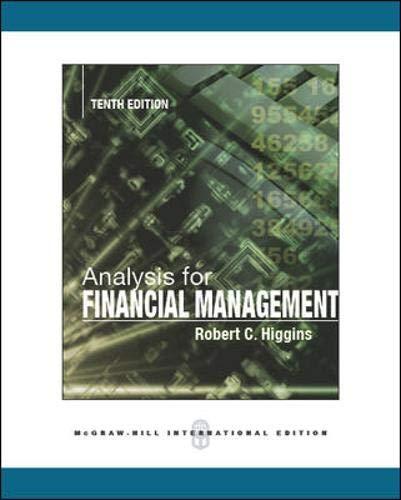1. (3 marks) What are the main differences between the born global and the Uppsala's internationalisation approaches? Briefly explain in no more than 250 words. 2. (5 marks) Now focus on the case study. What questions do you think the authors asked ALPHA in order to collect the informatiot that is provided in the study? Write a questionnaire with 10 questions. Make sure that the answers to the questions you formulate cover the most important information included in the case study. 3. (2 mark) Formulate an additional question that you would ask ALPHA to complement the study. Make sure that the answer to this question is not included in the case study. CASE STUDY The aim of this section is to present the case study of ALPHA explaining its history, as well as its international business history. The present case study was based on a qualitative methodology, involving the collection of data through an unstructured interview with ALPHA's chief executive officer. The information obtained was complemented with secondary information. The methodological research is dedicated to researching the instruments, paths or ways of doing science, to the production of techniques of dealing with reality or to the discussion of theoretical-practical approaches (Demo, 1995). Qualitative research is not concerned with the numerical representativity of a study in question, but rather with the deepening of the understanding of a social group, an organization, or a specific situation. Researchers who use qua ative methods seek to explain the reasons for things, expressing what should be done, but do not quantify symbolic values and exchanges, or submit to evidence of fact, since the data analyzed are 54 The Internationalization Process of a Born Global nonmetric and reflect different approaches (Gerhardt & Silveira, 2009; Villareal, 2017). The case study is one of several techniques used in social science research. Other techniques include experiments, questionnaires, stories, and archival analysis. The case study is preferable when one intends to examine contemporary events, but only when the relevant behaviors of the case cannot be manipulated. This qualitative technique adds two sources of evidence that are not usually included in the historian's repertoire: observation and systematic interviews (Yin, 2014). In-depth studies, as the one reported in this chapter, rather that attempting to test hypotheses aims at identifying the main driving forces behind ALPHAs internationalization, its initial export involvement and commitment, its current internationalization process and its future internationalization hurdles, so that one can finally confront ALPHA's evolutionary process with existing theory on entrepreneurship internationalization. A case study can often be used to answer an explanatory and exploratory (or descriptive) purpose (Maxwell, 1996). Yin (2014) points out that the questions How? and Why?" are directed with a more explanatory sense and therefore more appropriate for research strategies such as case studies, histories and experiences. Yin (2014) mentions that this is due to the fact that such issues deal with operational links that need to be tracked over time. Therefore, following Maxwell's (1996) and Yin's (2014) reasoning, case studies, such as experiments are replicable to theoretical propositions rather than to populations or universes. In this sense, the case study does not represent a sample and the objective of the researchers is to expand and generalize theories (analytical generalization) and not to enumerate frequencies (statistical generalization). A considerable range of qualitative approaches use structured and semi- structured interviews (Edwards & Holland, 2013). In this particular case, the use of an unstructured interview provides a greater range of analysis than other interview types, given its qualitative nature, and the purpose of the unstructured interview is the understanding of the situation (Fontana & Frey, 1994). In unstructured interviews the researcher clearly has research objectives and a topic of study, but the importance of the method is to allow the interviewee to speak through their own perspective, using their own frame of references, ideas and meanings that are familiar to the interviewee (Edwards & Holland, 2013). Genesis and Evolution of ALPHA Established early in the second half of 2015, as an urgent response to the employability of one of the company's partners, with higher education in teaching, the company started off by producing homemade pastry, and its name derives from the word "Tart". At the same time, considering it is a regional product with plenty of tradition amongst the families of the Beira-Mar neighborhood in Aveiro, some bottles of the traditional liqueur of such region have been produced, and this product has evolved from a qualitative standpoint in all experiments performed, thereby becoming the sole product marketed by the company in the first year. This specialization has proved to be an excellent strategy for the entry in the international and domestic market; the company has developed a clear mastery of the production process and product quality, which translated into trust from its customers/consumers. The main characteristics of ALPHA are shown in Table 1. From Bowl Liqueur ("Licor de Alguidar") to Aveiro Liqueur" The first bottles of 'Licor de Alguidar' were produced in 2015 and marketed under this brand/label with the permanent reference to the product's originating region (traditionally called this way because it was produced in traditional "bowls" from the Aveiro region throughout generations), and the labels showed the symbols of salt fields and moliceiros (traditional boats from the Aveiro region). In the several contacts the company held and interviews it gave to the media, it had the opportunity to mention that the need of giving up the traditional name arose due to it easily being associated with poor hygiene, and so it adopted the brand Aveiro liqueur" in 2016. Bryla (2015) mentions that demanding customers with purchasing power are increasingly seeking origin, flavor and other features of the product that are often assigned to the specific origin or production method. Goodman (2003) states that a "qualitative change" can be observed in the economy from the "industrial world", which sets out conventional and highly-standardized quality references in the mass production approach, to the domestic world" (small scale), in which the quality policy includes concepts such as trust and tradition by giving support to more differentiated, localized and environmentally-friendly products and forms of economic Table 1. Summary of the characterization of ALPHA Data of Inception Economic Activity Code Sales Volume July of 2015 11013 - Production of liqueurs and other distilled beverages 47112 - Retail sale in moe-specialized (food, beverages or tobacco stores 46341 - Wholesale of alcoholic beverages Year IS 30.000 Year 2 2 300.000 Tangerine, mint and strawberry flavored spirits. Lucu 90 Asia, Africa, and Europe Type of Products Exports (5) Main Markets 56 organization. In fact, the demand for homemade, traditional and local products, whose production processes are well-known, conveys quality and authenticity assurance when the product is purchased. The change of the brand from 'Licor de Alguidar to 'Aveiro Liqueur" proves the company intended to give the product such attributes, by conveying to the consumer an unequivocal experience of tasting a homemade, traditional, locally-produced product that is firmly established due to its uniqueness and authenticity. Since the Aveiro region is attractive in terms of different types of tourism, the company clearly aimed at not disaggregating the natural and expectant impact of the "Aveiro" brand associated with a marketable product. Sims (2009) mentions that local food specialities help conveying a sense of authenticity and singularity in the holiday destination and strengthen the external image of the region and of the region's brand (Boyne & Hall 2004). Aldereghi et al. (2016) further argue that, since local food specialities evoke the identity, culture and sustainability of the place of origin, the company aimed to explicitly and implicitly explore such features that are significant upon design of the marketing strategy of the local and regional tourist destinations. Aldereghi et al. (2016) state that local food products have become marketing and branding tools for promoting tourism in recent years due to the key role they play in the local tourist economies. From the different abovementioned authors' views, one can stress the importance of the change of the brand from 'Licor de Alguidar' to "Aveiro Liqueur", since it contributed positively to the company's marketing strategy, both in terms of entry into local and national market, and the approach towards the international market that shall be analyzed hereinafter. Regarding the existing and inseparable connection of the experience of local product consumption in tourist destinations, Aldereghi et al. (2016) state that the persons who already went on holidays to a tourist destination and had the opportunity to continue consuming the same products where they live in, can not only keep the interest on such destination alive, but also keep consuming the products where they live in. The Product As previously mentioned, the product produced and marketed by the company is a spirit drink with three traditional flavors: mint, strawberry and tangerine. It is available in 500ml and 50ml bottles, ensuring leak-proof design and preservation, as well as an easy handling and transportation of the final product. According to the company, the selection process for the larger bottle has been lengthy and thorough, having performed experiments with several references from suppliers and bottle shapes; the chosen reference provides better handling and preservation conditions and is visually more appealing. It was important to have a container accentuating the fact that it is a colorful drink. The company developed a box of chocolates 57 filled with the Aveiro Liqueur on the occasion of Christmas 2016, which was high in demand. The company deems the experience as extremely positive as it tried to diversify the existing product, where the liqueur remained the main element, and by taking advantage of the seasonal opportunity of demand for products with such features. It will certainly be a product to be perfected and invested in the future. The product is produced artisanally and based on traditional techniques that make it unique. It is positioned in the market, nationally and internationally as colorful, flavor-based spirituous drink bottled in 50 ml bottles. ALPHA originally targeted this liqueur for a niche market, although in 2016 it has extended product line to chocolates containing Aveiro liqueur. The product principles rest on a strong concentration on product quality, based on ALPHA's production special competences. Mission and Values Without false modesty, the company has asserted itself in the market through its website, with the mission of Being a reference company in the production of spirit drinks and combining the art of production with the city's history, which creates the Aveiro Liqueur." It evokes the principles and values of a family company, in line with the knowledge, production and qualitative mastery of the marketed product. The company intends to establish itself in the market as a reference in the trade of spirit drinks, based on the following values: ethics, honesty, excellence, commitment, innovation and respect. Promotion in Fairs, Events and Participation in International Competitions Although this is a young two-year-old company, it has already won four medals (two gold, one silver and one bronze) in the following international competitions: ProdExpo 2016 and the China Wine & Spirits Awards 2016. The company immediately recognized the importance of customers tasting the product so that the customer can come in contact with the product and, since then, it has sought to be represented in several international events in different ways, which allows the company to communicate with stakeholders, foster new relationships and maintain those already established. This company joined the seal "Portugal sou Eu" ["I am Portugal"), having participated in several national fairs, and is looking forward to promoting the company in external markets. It further intends to submit a "Portugal 2020" co-financing project for internationalization measures within the foreseeable future

